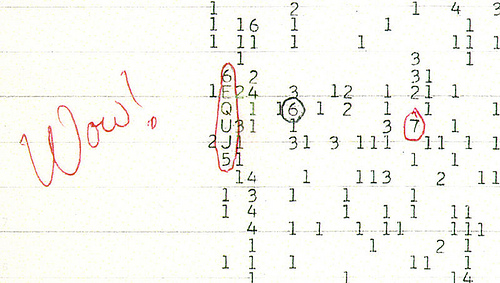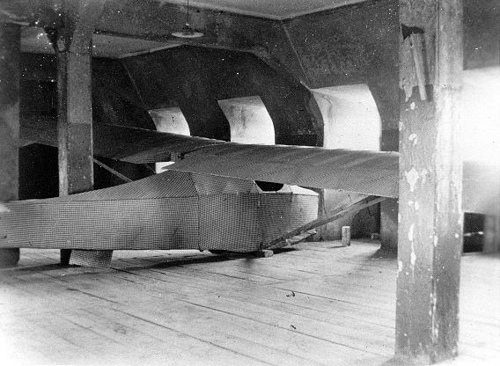
On Aug. 15, 1977, a telescope at Ohio State University detected a strong narrowband radio signal in the constellation Sagittarius — one so unusual that astronomer Jerry Ehman marked the printout with an exclamation.
The signal’s intensity rose and then fell as the beam swept past its position in the sky. That’s consistent with an extraterrestrial origin … but in 30 years and more than 100 searches, no one has been able to relocate it.
Without a recurrence, there’s no way to know what Ehman’s telescope heard that night — it’s just a frustrating splash in a large, silent sea.
08/27/2024 UPDATE: It appears there’s a natural explanation. New research suggests that the Wow! signal occurred when an interstellar cloud of cold hydrogen was stimulated by a strong transient radiation source, causing it to brighten momentarily. This phenomenon is rare but recognized, and it matches the described characteristics of the signal. This natural explanation is much preferable to the hypothesis of an alien technology — aliens may be out there, but we don’t need them to explain what Jerry Ehman saw in 1977. Thanks to podcast listener Eugene Chang for the tip.






